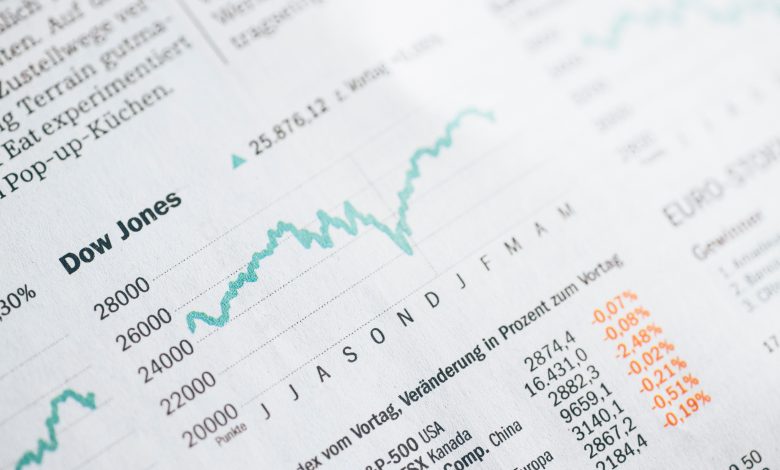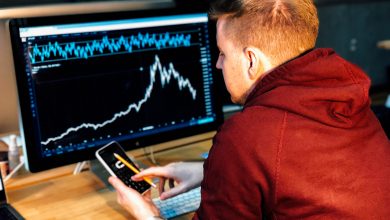Understanding a Stock Market Crash

One of the most critical questions of today is when the next major stock market crash is going to happen. Even though the U.S. has an abundance of high technology, it is still hard to pinpoint. All the math and science behind the stock market is complicated and sometimes challenging to figure out. However, the hardest part of the stock market is understanding what a crash means. Some people may not know that the stock market experiences little crashes that happen quite frequently. These are called stock market bubbles. The frequency of the bubbles helps speculators predict when the next major crash is going to happen.
Do you really know the ins and outs of a stock market crash? As stated before, it is a complicated situation. A stock market crash is defined by the percentage a cross-section drops in an instance. How low does the rate have to fall before it is considered a crash? The magic number ten is used as a guideline to determine if the stock market is approaching a crash. A significant problem with stock crashes is that they happen like lightning. They come flying in out of nowhere at times. In other moments, speculators can predict due to a short-term decrease in stock numbers.
The Stock Market
The best way to explain the stock market is through the process of a stock exchange. Stock exchange happens amongst industries and investors. To give you an example, a millionaire can invest in a company and trade their stocks to the current owner as partial payment. Investment plays a crucial role in the business management world. Some businesses invest in stock to keep their establishment afloat.
For some individuals, investing is a way to receive extra income. If your company doesn’t provide a retirement plan, consider spending a little bit of money into the stock market. This is a method that many people use to have income even after they retire. Keep in mind that you may not always make a profit from stocks, however. A determining factor on how much money you make depends on your agent and the stock market itself.
A common misconception is that “the more you invest, the more you make.” Nonetheless, this is not always true. A weak rule in stocks is that your agent doesn’t have to inform you if the stock you invested in is losing money. The agent cannot control the market. However, when investing, there are options to move your investment between stocks. Your agent should allow you to sign a waiver. The waiver states that, if a stock begins to crash, you give them the right to move your money into a new stock. A method like this allows individuals to make a profit from investments consistently. Most companies send you a monthly or quarterly invoice that shows the amount of money you have made or lost.

Stock Market Crash History
The history of the stock market dates back to the 1600s. The first-ever stock market crash recorded began with the Dutch tulip. The Dutch tulip was an exotic looking flower that had a true inner beauty. The tulips were imported from Turkey (the Ottoman Empire) to the western part of Europe. Due to the beauty of this flower, people all over the country wanted to buy it. These tulips grew fast into high demand. The prices began to skyrocket, and more tulips were needed. European investors started to buy every shipment. However, the speculators got in too far over their heads when the value decreased dramatically. The tulips were out of season, and no more could be grown. The domino effect from the flowers hit the Dutch economy and sent them into a depression. It took over ten years for the economy to recover.
Now that you have an idea of how a stock market crash works, let’s discuss two major U.S. stock market crashes.
The Great Depression
You probably know a lot about the stock market crash of 1929, better known as the Great Depression. The stock market crash destroyed the American economy.
Black Tuesday hit the stock market on the 29th of October, 1929. Some investors traded over 15 million shares on the New York stock in one day. Over millions of dollars were lost, and most investors lost everything. Due to the events that took place on Black Tuesday, America began to industrialize and sent the economy into the Great Depression. During this time, President Herbert Hoover was thought to blame, which killed his reputation.
In the 1920s, the American stock market expanded over twice its original size. Due to the rise of war crimes between countries, unemployment and production began to decline. Stocks were pricey and more expensive than their actual value. The aftermath of unemployment created a ripple effect through every industry from agriculture to banks. During this period, no one was able to liquidate any loans through the bank, and many people suffered. People began to sell their homes and lived in “Hoover shacks” to feed their families.
Hoover shacks were made from any material a homeless individual could find. They were not very stable and didn’t protect from any sort of weather conditions. More and more shacks were being built so that people could scrounge up as much money as possible. The area in which these shacks were located became known as Hooverville.
Once the stock market reached a point of no return, many people gained hope that it would go up in succeeding weeks. However, the economy, at this point, was too far gone, and everyone lost hope. By 1933, 95% of the banks had closed, and only 30% of Americans still had jobs. Through these dark years, Americans did everything in their power to immigrate to Europe in hopes of a better life. However, fate stepped in when the administration of Franklin D. Roosevelt came into power.
The administration fixed a lot of the symptoms the country was experiencing. Roosevelt did as much as possible to get the country back on its feet. Nonetheless, the country did not recover fully until November of 1939. This was about the only good thing that came from World War II.
The Crash of 1987
The crash of 1987 took place on the 19th of October and was named Black Monday. The crash began just the same as the crash of 1939. Speculators over traded their stocks and lost 67% of investments. Corporations began to buy out many shares, and sharing prices started to boom. Once this was all cleared, the stock market began to decrease in value as a whole. The rippling effect of these mini crashes soon began to overrun the system.
The stock market had to pull the plug on its various operations and stop trading for over a year; likewise, the break allowed the stock prices to return to normal. Speculators began to figure up some new rules to apply each quarter. One provision states that trading can only be done twice in a period to minimize a decreasing value within a stock.
The Tie Between the Stock Market and Economy
Why is the stock market relevant to the global economy? The stock market creates a turnover for commerce and industries as a global community. Think about it like this. If every country fended for themselves, how much would they be without? Some countries may experience food shortages, a decrease in the value in production, or loss of power. Countries trade more than just products; they trade-economic methods to help evolve and grow as one. The global community can set aside cultural differences to help aid in one common goal, growth.
The stock market makes up over a quarter of each country’s economy. It seems like a lot of pressure to put on one system; however, it has helped keep most countries afloat in desperate times.

The Next Stock Market Crash
If you have money invested, it may be time to start asking about the frequency of stock bubbles. The more frequent bubbles happen, the more likely the stock market is to crash. Even with the technology of today, it is difficult to pinpoint an exact date for the next stock market crash. However, even if the stock market crashes, our economy is thriving at the moment, so it probably won’t create another depression.
The market is evolving every day and continues to change with current events. What some people may not know is that the climate plays a significant role when it comes to the stock market. Climate change may increase or decrease the production of a product. The environment also affects the shipments and trades when products are imported.
All in all, the stock market is something to pay attention to. Make sure you are reading up on current events in the global economy. The fall of one country may create a hiccup in another. Set up an appointment or meeting with your present agent to help understand the value of a stock you have invested in. There are no stupid questions, especially when it comes to your money. Never be afraid to take charge of the situation. Also, consider the option of money movement to keep a positive outlook on future profits. This method ensures that, even if the stock market crashes, you may still make some sort of money. The more your investment is broken up, the more you can make.
The value of money is decreasing rapidly, and the prices of products are increasing. Remember to make smart moves when it comes to investing. Research as much as possible before sitting down with an agent. Look into various companies in certain areas. You do not have to invest in a company that is in your state. Some believe it is smarter to keep investments in an establishment that is further from your home because it decreases the urge to pull out of the market.



